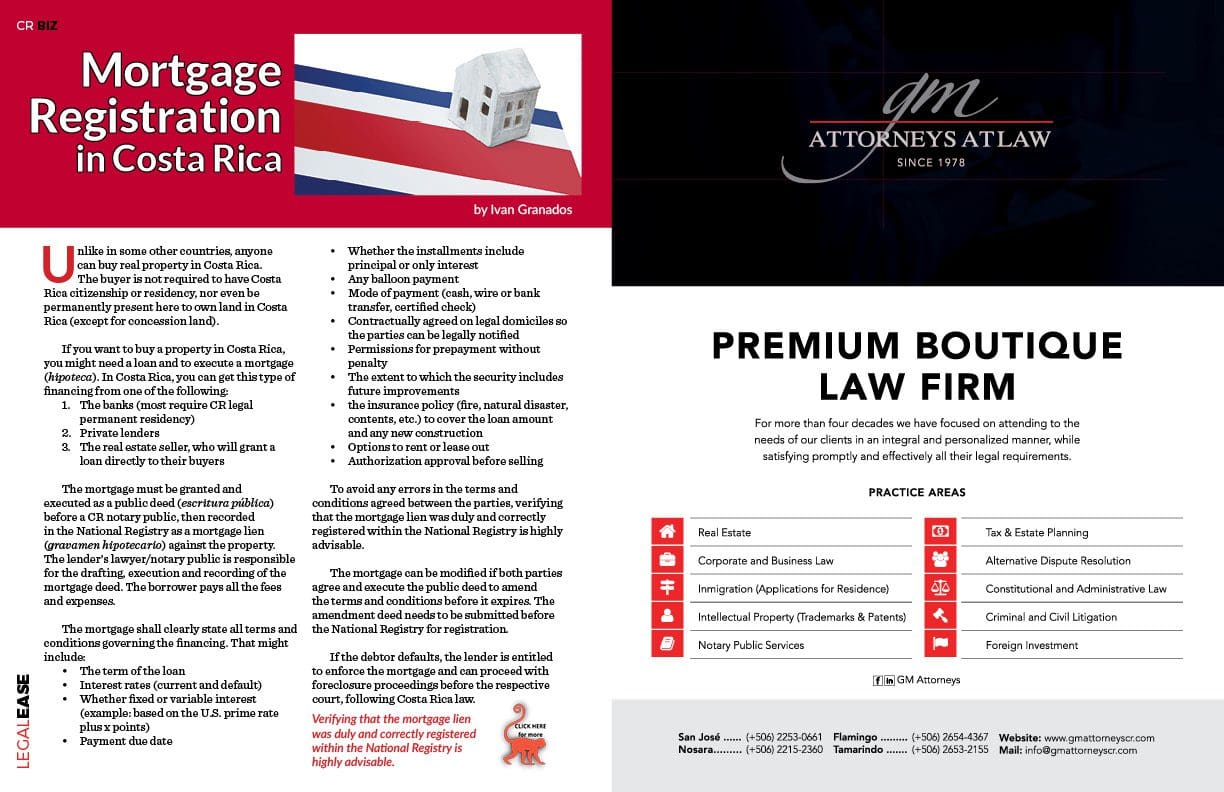
Mortgage Registration in Costa Rica
Unlike in some other countries, anyone can buy real property in Costa Rica. The buyer is not required to have Costa Rica citizenship or residency, nor even be permanently present here to own land in Costa Rica (except for concession land).
If you want to buy a property in Costa Rica, you might need a loan and to execute a mortgage (hipoteca). In Costa Rica, you can get this type of financing from one of the following:
- The banks (most require CR legal permanent residency)
- Private lenders
- The real estate seller, who will grant a loan directly to their buyers
The mortgage must be granted and executed as a public deed (escritura pública) before a CR notary public, then recorded in the National Registry as a mortgage lien (gravamen hipotecario) against the property. The lender’s lawyer/notary public is responsible for the drafting, execution and recording of the mortgage deed. The borrower pays all the fees and expenses.
The mortgage shall clearly state all terms and conditions governing the financing. That might include:
- The term of the loan
- Interest rates (current and default)
- Whether fixed or variable interest (example: based on the U.S. prime rate plus x points)
- Payment due date
- Whether the installments include principal or only interest
- Any balloon payment
- Mode of payment (cash, wire or bank transfer, certified check)
- Contractually agreed on legal domiciles so the parties can be legally notified
- Permissions for prepayment without penalty
- The extent to which the security includes future improvements
the insurance policy (fire, natural disaster, contents, etc.) to cover the loan amount and any new construction - Options to rent or lease out
- Authorization approval before selling
To avoid any errors in the terms and conditions agreed between the parties, verifying that the mortgage lien was duly and correctly registered within the National Registry is highly advisable.
The mortgage can be modified if both parties agree and execute the public deed to amend the terms and conditions before it expires. The amendment deed needs to be submitted before the National Registry for registration.
If the debtor defaults, the lender is entitled to enforce the mortgage and can proceed with foreclosure proceedings before the respective court, following Costa Rica law.


